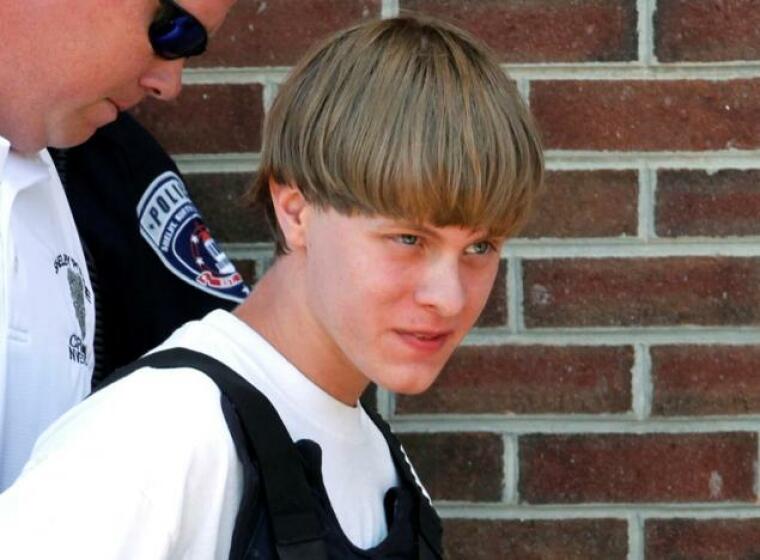Court screens jurors for Charleston Church shooting trial
The jury selection for the federal trial of Charleston church shooter Dylan Roof started on Monday with the appearance of potential jurors at the federal courthouse in Charleston, South Carolina.
Roof, 22, is facing 33 federal charges including hate crimes and obstruction of religion for the shooting of nine black parishioners at the Emanuel AME Church in June 2015.

Twelve jurors and six alternates will be picked from the 3,000 people who were summoned from several counties this summer. The trial is set to begin in November.
U.S. District Judge Richard Gergel said that the jurors will not be sequestered but their hotel room will be paid for by the court. Gergel acknowledged that the case has been widely publicized but he asked the potential jurors not to research the case or talk to anybody about it.
Roof's trial will be divided into two phases. The first phase is to establish his guilt. If found guilty, the second phase will determine whether he should be sentenced with life imprisonment or the death penalty.
The attorney for the defendant has previously stated that Roof is willing to plead guilty if prosecutors would not seek the death penalty. U.S. Attorney Loretta Lynch insisted on the death penalty because of "the nature of the alleged crime and the resulting harm."
Miller Shealy, an attorney who teaches at the Charleston School of Law, said that the task of finding a jury that will rule against the death penalty for Roof could prove challenging for the defense.
"You're trying to apply a little common sense and the best social science and psychology you can get to determine how you can pick a jury that is as non-lethal as possible," he said. "The government is trying to pick a jury that actually will give the death penalty based on the facts and the circumstances," Miller added.
The attorneys will be presented with 70 qualified jurors from a pool of 700, which were screened from an original figure of 3,000. The lawyers will be able to use strikes to dismiss the jurors they dislike.
 Christians don't have to affirm transgenderism, but they can’t express that view at work: tribunal
Christians don't have to affirm transgenderism, but they can’t express that view at work: tribunal Archaeology discovery: Medieval Christian prayer beads found on Holy Island
Archaeology discovery: Medieval Christian prayer beads found on Holy Island Presbyterian Church in America votes to leave National Association of Evangelicals
Presbyterian Church in America votes to leave National Association of Evangelicals Over 50 killed in 'vile and satanic' attack at Nigerian church on Pentecost Sunday
Over 50 killed in 'vile and satanic' attack at Nigerian church on Pentecost Sunday Ukrainian Orthodox Church severs ties with Moscow over Patriarch Kirill's support for Putin's war
Ukrainian Orthodox Church severs ties with Moscow over Patriarch Kirill's support for Putin's war Islamic State kills 20 Nigerian Christians as revenge for US airstrike
Islamic State kills 20 Nigerian Christians as revenge for US airstrike Man who served 33 years in prison for murder leads inmates to Christ
Man who served 33 years in prison for murder leads inmates to Christ


 Nigerian student beaten to death, body burned over ‘blasphemous’ WhatsApp message
Nigerian student beaten to death, body burned over ‘blasphemous’ WhatsApp message 'A new low': World reacts after Hong Kong arrests 90-year-old Cardinal Joseph Zen
'A new low': World reacts after Hong Kong arrests 90-year-old Cardinal Joseph Zen Iran sentences Christian man to 10 years in prison for hosting house church worship gathering
Iran sentences Christian man to 10 years in prison for hosting house church worship gathering French Guyana: Pastor shot dead, church set on fire after meeting delegation of Evangelicals
French Guyana: Pastor shot dead, church set on fire after meeting delegation of Evangelicals ‘Talking Jesus’ report finds only 6% of UK adults identify as practicing Christians
‘Talking Jesus’ report finds only 6% of UK adults identify as practicing Christians Mission Eurasia ministry center blown up in Ukraine, hundreds of Bibles destroyed: 'God will provide'
Mission Eurasia ministry center blown up in Ukraine, hundreds of Bibles destroyed: 'God will provide' Church holds service for first time after ISIS desecrated it 8 years ago
Church holds service for first time after ISIS desecrated it 8 years ago Burger King apologizes for 'offensive campaign' using Jesus' words at the Last Supper
Burger King apologizes for 'offensive campaign' using Jesus' words at the Last Supper Uganda: Muslims abduct teacher, burn him inside mosque for praying in Christ’s name
Uganda: Muslims abduct teacher, burn him inside mosque for praying in Christ’s name